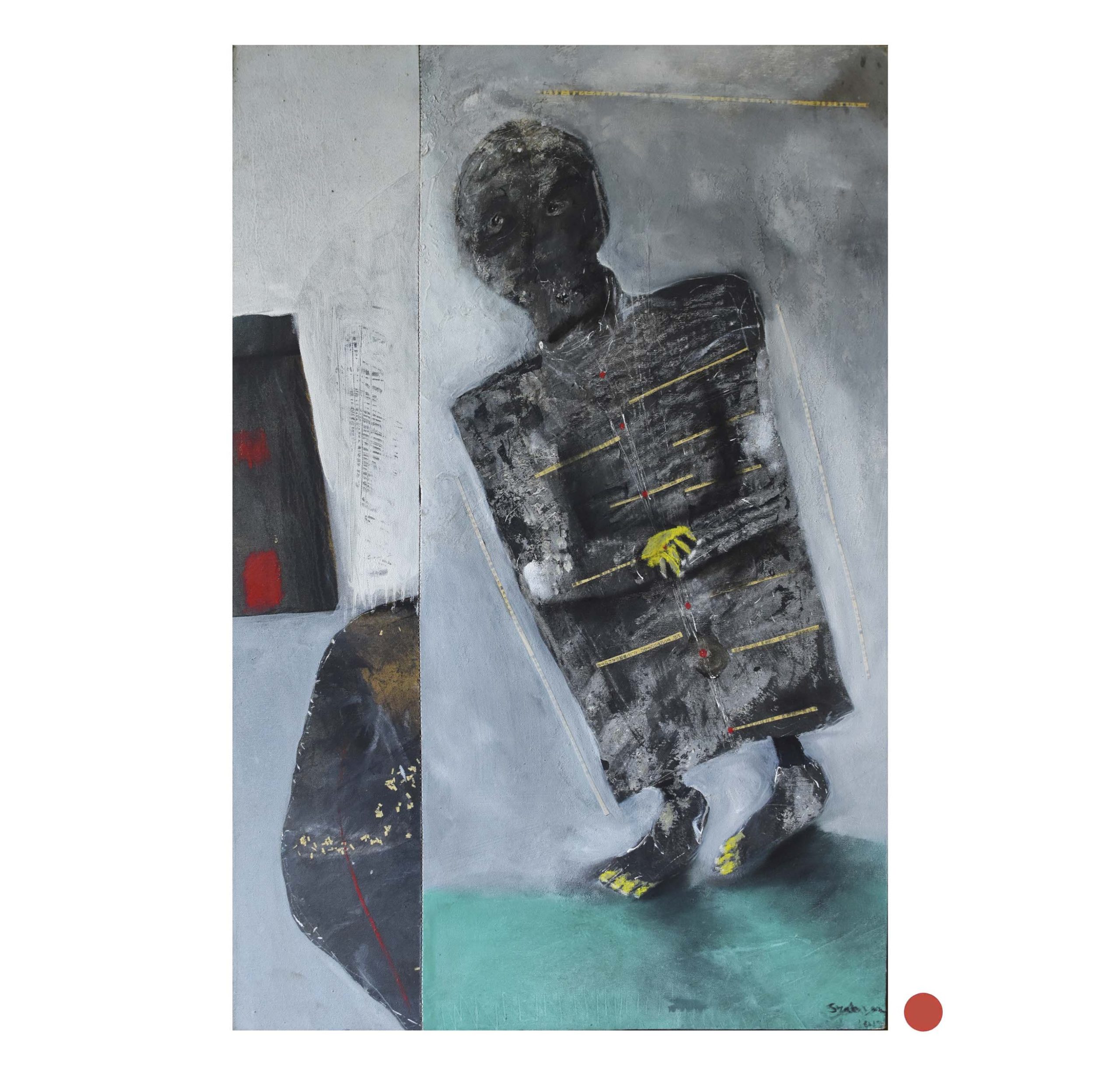Description
Mixed Media on Canvas, Shabu Mwangi (Kenyan, born 1985)
Title: New Democracy II, 2017
58 x 87 cm
Signed ‘Shabu (front)
Provenance: Direct from artist.
Shabu Mwangi lives and works in mukuru slum where He has his studio.
Shabu joined the world of art in the year 2003, feeling that He had something to share with the society and the only tool He could use and give deeper meaning to the many slights and oversights He observed was art. It was a window through which He could see things which pass without any acknowledgement from and within the system and public view. It is his reaction on behalf of the minority who exist in the shadows and at the edges of the majority. A journey more meaningful than its destination as the silenced minority does not own the present anymore, this is his holistic view of things happening within and around his life experience.
Most of his ideas and concepts are derived from a view that the inequality and frustration that deeply affects his society and the actions we take can give some insight on who we are and how divided we are culturally and socially. We can bridge the border between rich and poor but we create another gap with our ethnicity and religious beliefs. Scavenging our identities from the information we are fed by people in power makes us forget the purpose of revolution and why we should have changed as a society. We have missed the point. A culture that has long been connected with unity is no longer there, now we have a society of numbers and a culture of greed. Our lack of empathy is our weakness.
In his work, He strives to examine human behaviour and interaction and what really drives us to a point of losing the sense of oneness. He keeps on reflecting on our quest as human beings: the acceptance of our condition and at the same time the view that we are forgetful, a kind of collective amnesia. I believe wealth will never describe a rich man or poverty a poor man in the eyes of a keen observer.
The metaphors Shabu use are a tale of the inner broken silence where faces and the bodies do not need any narrative interpretation. The beauty and the importance of these works proceed from personal experience and from fundamental emotions. These are shades of light and dark. A path between strength, weakness and pain. These works put the viewer in his mind, the observer’s mind and serve as a constant reminder that to question our existence is fundamental.
[DISPLAY_ULTIMATE_PLUS]




